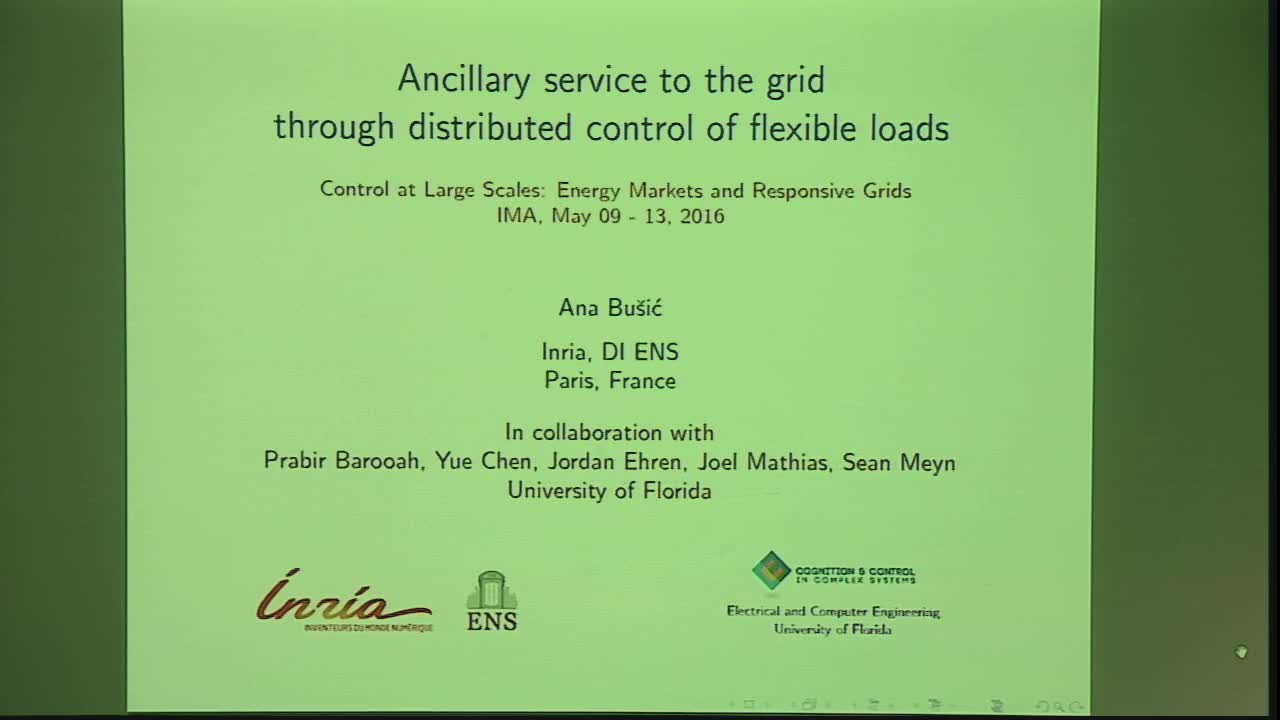Abstract
Renewable energy sources such as wind and solar power have a high degree of unpredictability and time-variation, which makes balancing demand and supply challenging. One possible way to address this challenge is to harness the inherent flexibility in demand of many types of loads. We propose a technique for distributed control for automated demand response that can be used by grid operators as ancillary service for maintaining demand-supply balance. It is assumed that there is one-way communication from the grid operator to each load. The loads are either on or off - their power consumption is not continuously variable. A randomized control architecture is proposed, motivated by the need for decentralized decision making, and the need to avoid synchronization that can lead to large and detrimental spikes in demand. A mean-field limit is used to obtain an input-output model, where the output is the aggregate power consumption.
